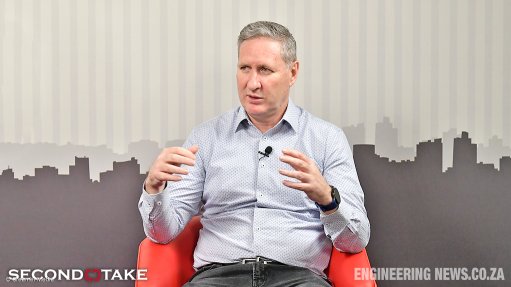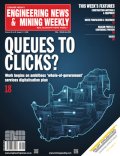Purpose-driven organisations will attract, retain talent – PwC
Employers need to strive to provide purpose at the heart of their operations, as employees scrutinise how well their organisation is looking after the workforce and doing the right thing by society at large, especially in uncertain times, says assurance, advisory and tax services firm PwC.
While material aspects of a job are easy to implement and create an immediate response of appreciation, the past two years have provided a period of introspection that has left many questioning whether the organisation that they work for is still a good fit, the firm points out.
The impact of material aspects is, however, often the least enduring on employee retention and does not stop competitors from outbidding one another for talent, PwC states in its ‘Productivity in a Personalised Age of Employment’ report.
“Organisations unwilling to reinvent their present employee offering risk losing out on the people needed to succeed in their future ambitions. Employee preference and choice must be factored in to recruit and retain great talent, and to increase engagement driving sustainable productivity and performance.
“From flexible work models to virtual team-builders, how employers give back to employees should evolve in tandem with employees’ dynamic wants and needs,” PwC advises.
From 2021 onwards, the world entered the personalised age, in which an employer empowers the individual employee to satisfy their preferences to do work where and how they perform best.
From 2023 onwards, the world is entering the intelligent age of work, in which an employer empowers individual, team and organisational performance through real-time scientific intelligent analytics, the report states.
As Generation Z workers are becoming the largest demographic, and surpassing Millenials, the workforce is becoming increasingly demanding and vocal about work experiences that do not live up to promised expectations, which risks breaching the psychological contract, and contributing to quiet quitting and burnout.
Ongoing measurement and data collection is, therefore, essential to understand how employees experience the people value proposition, to identify strengthened or weakened relationships, to compare competitor offerings and to recognise shifts in overall preferences that may or may not be unique to an organisation's workforce.
“Most importantly, keeping a pulse on your people’s preferences shows that you are willing to listen, empower, care and change to create an exceptional work experience. It shows they are part of driving purpose in the organisation, not backseat passengers,” PwC says in the report.
Further, in terms of current and future trends, organisations need hybrid strategies to reflect the personalisation of work and how individuals and teams undertake work using real-time tools or leverage advanced insights from human sciences.
Focusing on strengthening the interaction of people and technology in the ways of work sets employees up for future success. This is especially true when organisations embed digitisation and technology-enabled solutions, such as real-time data analytics, actively into business decision-making and execution, PwC advises.
WORKPLACE PREFERENCES
Meanwhile, in terms of workplace preferences, multi-workplace working is in-demand, with 72% of employees surveyed preferring a mix of face-to-face and virtual working. The modern employee values the benefits of in-person collaboration and better work-life balance enabled by remote work models.
The freedom to transition between face-to-face and virtual work based on employee preferences and fluctuating work demands is a step towards workplace personalisation and encompasses the variety of benefits supported by hybrid models, the report notes.
However, organisations are seeing a difference in workplace productivity style by age. PwC’s Remote Work Survey 2021 found that 61% of employees aged 18 to 24 feel the least productive when working from home, compared with 72% in other age groups.
“As Gen Z starts to bulk up employee numbers, employers must consider strategies to foster collaboration and connectivity to meet individual preferences and expectations,” the report notes.
Additionally, PwC's research has found that employee expectations for support have changed, with an expectation of flexibility and autonomy, as 33% of workers would not accept a new role that did not offer remote working. Similarly, almost three in ten would consider a pay cut to work from anywhere in the world.
Further, there is an expectation for the organisation to hold itself accountable for the creation of a fairer, more inclusive and equitable workplace. Employees expect organisations to be more agile and provide enabling technologies to help them work when and where they want, the report states.
“The perspective on location needs to change. It is not just where you are located, it is also when and how you work. There is a need to consider where the ideal locations are to find workers with the right skills.”
Many organisations have not yet started to think through their future vision for their workplaces, the report adds.
EMPLOYER STRATEGIES
PwC advises employers to identify the right strategies to plan for, attract, develop and retain the future workforce. This includes developing different workforce models to deploy talent more dynamically, define the future workforce and understand the possibilities from automation and remote working, and focusing on targeted personalised upskilling journeys.
Additionally, employers should aim to understand their cultural traits and identify the behaviours to evolve. Businesses should identify the critical behaviours to sustain long-term change and culture shift, and nurture physical vitality and mental wellbeing as a core cultural foundation, the report highlights.
Further, employers should co-create with employees and provide new ways to listen, enable and iterate. To do so, employers should promote a continuous focus on keeping people at the centre of design decisions, and develop a people value proposition that reflects what workers want.
Similarly, organisations should work to understand current leadership capabilities and ways to inspire a distributed workforce.
“Businesses must inspire new ways of working and build connections and community while working remotely,” the PwC report advises.
“Employees are now scrutinising how well their organisation is looking after the workforce, and want to work for employers that show they care and live up to their purpose, values and culture.
“A winning people value proposition is, therefore, tailored to meet the dynamic needs of individuals and connect them to a collective desire for community, psychological safety and purpose at work,” says PwC South Africa workforce productivity and performance transformation manager Unisha Moharsingh.
Comments
Press Office
Announcements
What's On
Subscribe to improve your user experience...
Option 1 (equivalent of R125 a month):
Receive a weekly copy of Creamer Media's Engineering News & Mining Weekly magazine
(print copy for those in South Africa and e-magazine for those outside of South Africa)
Receive daily email newsletters
Access to full search results
Access archive of magazine back copies
Access to Projects in Progress
Access to ONE Research Report of your choice in PDF format
Option 2 (equivalent of R375 a month):
All benefits from Option 1
PLUS
Access to Creamer Media's Research Channel Africa for ALL Research Reports, in PDF format, on various industrial and mining sectors
including Electricity; Water; Energy Transition; Hydrogen; Roads, Rail and Ports; Coal; Gold; Platinum; Battery Metals; etc.
Already a subscriber?
Forgotten your password?
Receive weekly copy of Creamer Media's Engineering News & Mining Weekly magazine (print copy for those in South Africa and e-magazine for those outside of South Africa)
➕
Recieve daily email newsletters
➕
Access to full search results
➕
Access archive of magazine back copies
➕
Access to Projects in Progress
➕
Access to ONE Research Report of your choice in PDF format
RESEARCH CHANNEL AFRICA
R4500 (equivalent of R375 a month)
SUBSCRIBEAll benefits from Option 1
➕
Access to Creamer Media's Research Channel Africa for ALL Research Reports on various industrial and mining sectors, in PDF format, including on:
Electricity
➕
Water
➕
Energy Transition
➕
Hydrogen
➕
Roads, Rail and Ports
➕
Coal
➕
Gold
➕
Platinum
➕
Battery Metals
➕
etc.
Receive all benefits from Option 1 or Option 2 delivered to numerous people at your company
➕
Multiple User names and Passwords for simultaneous log-ins
➕
Intranet integration access to all in your organisation



















